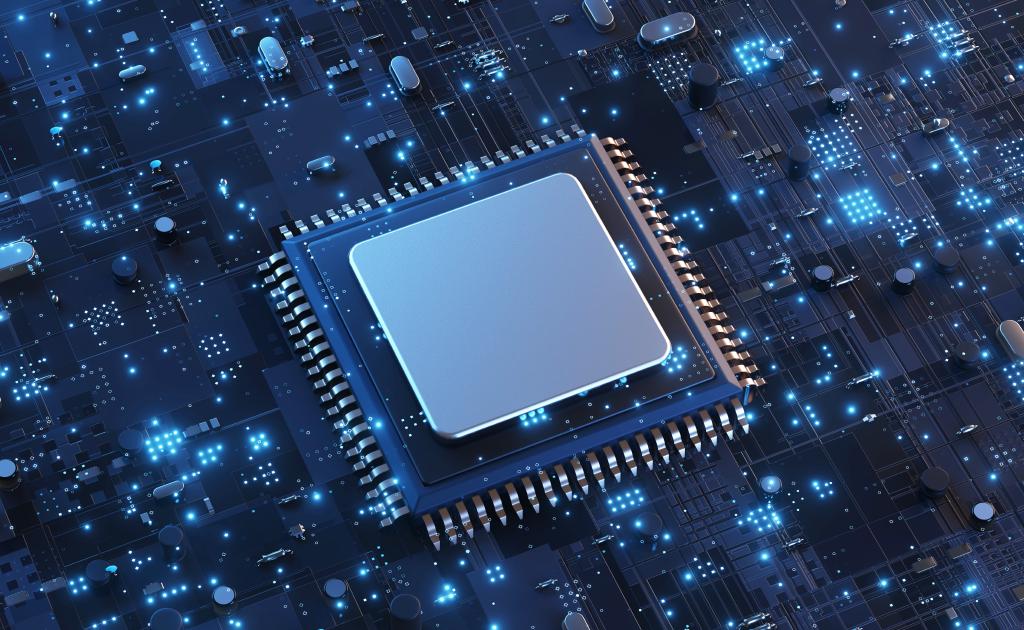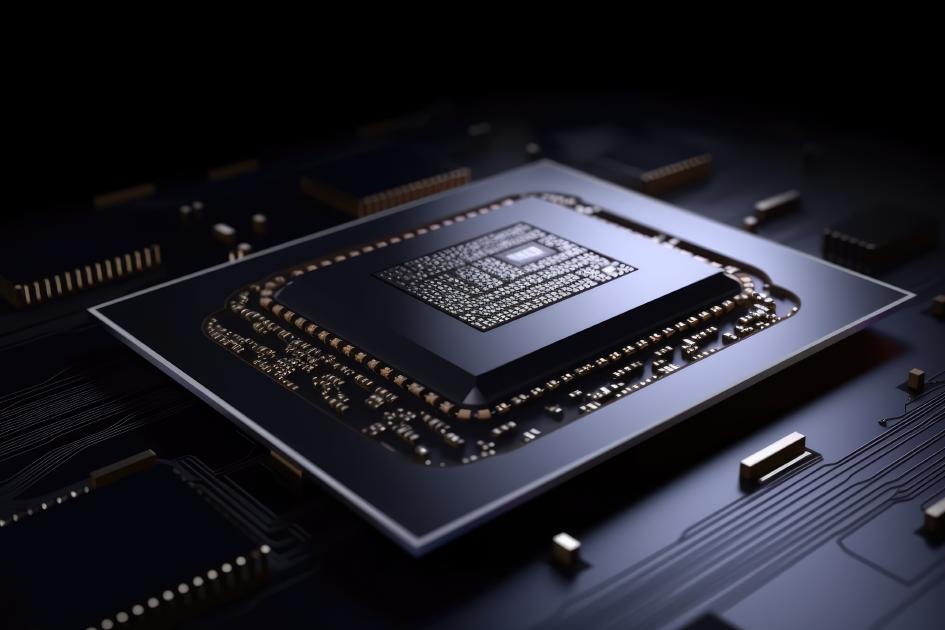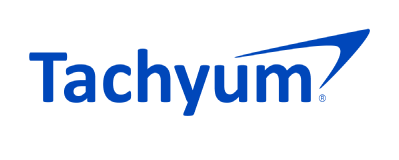Featured articles

 | New Electronics
| New ElectronicsTachyum reveals 2nm Prodigy processor promising major AI performance gains

 | Overclock3D
| Overclock3DTachyum unveils 2nm “Prodigy Ultimate” processor to destroy Nvidia

 | Electronics World
| Electronics WorldTachyum unveils 2nm Prodigy processor with breakthrough performance

 | Electronics Weekly
| Electronics WeeklyTachyum processor claims 21x performance of Rubin Ultra

 | TechPowerUp
| TechPowerUpTachyum Intros 2 nm Prodigy Universal Procesor Targeting Improved AI Rack Efficiency

 | Tom's Hardware
| Tom's HardwareTachyum's 'general-purpose' Prodigy chip delayed again — now with 256 cores per chiplet and a $500 million purchase order from EU investor
All articles
December
- | wccftech.com
Google May Be Forced to Change the Name of Its AI Chips as Tachyum Is Legally Pursuing the Company Over the “TPU” Trademark
Well, Google’s TPUs have gained immense market spotlight, but it appears that the firm might face a ’legal’ trouble, which could force them to change the name of their AI chips.
- | Intellectica
Tachyum Defends TPU Trademark Against Google's Infringement
Trademark Protection Action: Tachyum, which applied for the TPU trademark in 2015 and secured rights in 2020, is demanding that Google cease using TPU to describe its products, indicating its legal claims to the trademark to maintain its competitive position in the AI market.
November
- | wccftech.com
Tachyum Unveils TDIMM DDR5 Memory: Up To 1 TB Capacity Per DIMM & 5x Bandwidth Increase To 231 GB/s, DDR6 TDIMM’s Proposed For 2028
Tachyum has announced its new and open-source TDIMM memory standard, offering big uplifts in bandwidth & high capacity per module.
- | The AI Journal
Tachyum Open Sources 281GB/s TDIMM™ for the Future of AI and Computing
LAS VEGAS–(BUSINESS WIRE)–#Linux—Tachyum® today announced details about how its TDIMM™ technology is bringing the future of AI and computing, enabling AI models with parameters many orders of magnitude greater than those of any existing solution at a fraction of the cost. TDIMM is key to reducing the estimated cost of OpenAI data center $3 trillion and 250,000 megawatts of power to $27 billion and 540 megawatts.
- | Intellectica
Tachyum's TDIMM and Prodigy: Disrupting AI Infrastructure Economics
The global AI infrastructure market is at a crossroads. As demand for large-scale AI models surges, the cost and energy barriers to deployment have become existential challenges for enterprises and governments alike. Enter Tachyum, a company whose Prodigy Universal Processor and proprietary TDIMM (Tachyum DDR5 DIMM) are positioning themselves as a disruptive force. By combining unprecedented memory bandwidth, energy efficiency, and cost reductions, Tachyum claims to offer a solution that could democratize access to next-generation AI. But how credible are these assertions? Let’s dissect the technical and economic claims underpinning this bold vision.
- | MarketWatch
Tachyum Open Sources 281GB/s TDIMM(TM) for the Future of AI and Computing
Tachyum(R) today announced details about how its TDIMM(TM) technology is bringing the future of AI and computing, enabling AI models with parameters many orders of magnitude greater than those of any existing solution at a fraction of the cost. TDIMM is key to reducing the estimated cost of OpenAI data center $3 trillion and 250,000 megawatts of power to $27 billion and 540 megawatts.
- | TechPowerUp
Tachyum Announces Details of Its 281 GB/s DDR5 DIMM (TDIMM)
Tachyum today announced details about how its TDIMM is bringing the future of AI and computing, enabling AI models with parameters many orders of magnitude greater than those of any existing solution at a fraction of the cost. TDIMM is key to reducing the estimated cost of OpenAI data center $3 trillion and 250,000 megawatts of power to $27 billion and 540 megawatts.
- | StorageNewsletter.com
Tachyum Unveils 2nm Prodigy Universal Processor with 21x Higher AI Rack Performance
Tachyum Prodigy 2nm Processor Intro BProdigy Ultimate provides up to 21.3x higher AI rack performance than Nvidia Rubin Ultra NVL576. Prodigy Premium provides up to 25.8x higher AI rack performance than Vera Rubin 144. Technical details of the 2nm Prodigy, the 1st ever chip to exceed 1,000 PFLOPs on inference, will be published within a week. Nvidia Rubin delivers 50 PFLOPs.
- | BENZINGA
Tachyum Prodigy Can Reduce OpenAI $3T 250 GW to $27B 540 MW
Tachyum® today announced details regarding how performance improvements are achieved for its 2nm Prodigy® Universal Processor. It will enable AI models with parameters many orders of magnitude more than those of any existing solution at a fraction of the cost.
- | BISinfotech
Tachyum Unveils 2nm Prodigy Processor With AI Breakthrough
In a major milestone for semiconductor innovation, Tachyum Inc. has officially unveiled its 2 nm Prodigy Universal Processor, designed to deliver breakthrough performance in artificial intelligence.
- | Electronics World
Tachyum unveils 2nm Prodigy processor with breakthrough performance
US-based technology company Tachyum has developed the Universal Processor, the 2nm Prodigy Ultimate, that combines the functions of a CPU, GPGPU and TPU into a single homogeneous processor architecture that 25.8x higher AI rack performance and 10x lower power than competing products. The processor delivers breakthrough performance and efficiency for a wide range of applications, including Hyperscale, HPC and AI data centres.
- | Overclock3D
Tachyum unveils 2nm “Prodigy Ultimate” processor to destroy Nvidia
Tachyum has officially revealed detailed specifications for its upcoming Prodigy Universal Processor. This new 2nm chip in its “Prodigy Ultimate” variant will allow Tachyum to provide “21.3x higher AI rack performance than Nvidia Rubin Ultra NVL576”. Their “Prodigy Premium” model should also provide “up to 25.8x higher AI rack performance than Vera Rubin 144”.
- | New Electronics
Tachyum reveals 2nm Prodigy processor promising major AI performance gains
Tachyum has unveiled its next-generation Prodigy Universal Processor, built on a 2nm process node, claiming unprecedented performance for artificial intelligence workloads and high-performance computing.
- | cbswatchmagazine.com
Next-Gen Powerhouse: Tachyum’s 2nm Prodigy Chips Boast 1024 Cores at 6 GHz, 1 GB Cache, and 21x NVIDIA Rubin Ultra Speed
Tachyum has announced the release of its groundbreaking 2nm Prodigy chips, promising up to 1024 cores and cutting-edge DDR5 memory support. These chips aim to challenge NVIDIA’s Rubin Ultra in the competitive computing landscape.
- | wccftech.com
Tachyum’s 2nm Prodigy Chips Are Insane: 1024 Cores Running at 6 GHz, 1 GB Cache, 24-Channel DDR5-17600 Support, & 21x Faster Than NVIDIA Rubin Ultra
Tachyum has unveiled its 2nm Prodigy chips, which aim to offer up to 1024 cores and support super-fast DDR5 memory, and will compete against NVIDIA’s Rubin Ultra.
- | SemiWiki
Tachyum Unveils 2nm Prodigy with 21x Higher AI Rack Performance than the Nvidia Rubin Ultra
Prodigy Ultimate provides up to 21.3x higher AI rack performance than Nvidia Rubin Ultra NVL576. Prodigy Premium provides up to 25.8x higher AI rack performance than Vera Rubin 144. Technical details of the 2nm Prodigy, the first ever chip to exceed 1,000 PFLOPs on inference, will be published within a week. Nvidia Rubin delivers 50 PFLOPs.
- | Electronics Weekly
Tachyum processor claims 21x performance of Rubin Ultra
Tachyum, the Las Vegas processor startup with a Universal Processor integrating CPU, GPU and TPU, claims that its 2nm Prodigy Ultimate processor provides up to 21.3x higher AI rack performance than Nvidia Rubin Ultra NVL576 delivering 1,000 PFLOPs on inference compared to Rubin’s 50 PFLOPs.
- | TechPowerUp
Tachyum Intros 2 nm Prodigy Universal Procesor Targeting Improved AI Rack Efficiency
Tachyum today announced details and specifications for its 2 nm Prodigy Universal Processor, which will enable AI models with parameters many orders of magnitude larger than those of any existing solution at a fraction of the cost.
October
- | Yahoo! Finance
Tachyum Opens Offices in Taiwan to Expand Reach of Prodigy Universal Processor
As Tachyum continues towards tape-out for Prodigy, the company has chosen to establish manufacturing, testing, assembly, ODM, logistics and support facilities in Taiwan to ensure worldwide shipments of the completed product without the need for intermediaries.
- | Tom's Hardware
Tachyum's 'general-purpose' Prodigy chip delayed again — now with 256 cores per chiplet and a $500 million purchase order from EU investor
The biggest news is that Tachyum’s Prodigy processor will adopt a multi-chiplet design and each compute chiplet within that system-in-package (SiP) will feature 256 universal cores.
- | TechPowerUp
Tachyum Signs $220 Million Funding and $500 Million Purchase Order
With a total of more than $300 million invested over three funding rounds, Tachyum is poised to revolutionize AI data centers by solving the most challenging barriers to AI and expects that Series C will propel the company to an IPO, potentially as early as 2027.
- | StreetInsider
Tachyum Supports Next Stage of AI Revolution Behind FP4 Data Type
Tachyum’s AI team has demonstrated that a foundation model fine-tuned on a task-specific dataset in FP4 data type, which represents value using 4-bit floating-point format rather than standard FP32 or BF16, achieves parity with traditional FP32 training baselines.
July
- | AI-TechPark
Tachyum Enhances Prodigy Universal Processor Behind eBPF Port
Tachyum’s engineers ported Kprobes (Kernel Probes), which plays an important role in the eBPF JIT technology and serves as trigger for eBPF subroutines.
- | Silicon Hub
Tachyum's eBPF Port: The Evolution of the Prodigy Processor
Tachyum is at the forefront, pushing the boundaries with its Prodigy Universal Processor which promises unparalleled versatility across various applications. A recent development has taken center stage with the successful port of the eBPF Just-In-Time (JIT) compiler to their software emulation platform.
June
- | EE Herald
Tachyum releases white paper on DeepSeek LLM quantization to 2-bit TAI2
The white paper explains that MoE can achieve performance comparable to dense models while using approximately four times less computing power and memory bandwidth, though memory capacity requirements increase by about four times.
- | Morningstar
Tachyum Radically Cuts the Cost of DeepSeek by Quantizing it to 2-bits
Tachyum today announced the release of a new white paper detailing how it efficiently scales Large Language Model (LLM) training and inference through the Mixture of Experts (MoE) approach. The company’s method is further improved by a DeepSeekMoE architecture with 4-bit FP4 data types for activations quantization and 2-bit Tachyum AI (TAI2) sparse weights quantization.
May
- | Silicon.co.uk
Tachyum Demonstrates System Management on Prodigy Universal Processor
Validating SMM shows that Tachyum’s Prodigy is capable of running in this distinct and isolated processor environment, independently of the operating system and transparently to executive and software applications.
April
- | Yahoo! Finance
Tachyum Joins UALink to Advance the Future of Data Center AI Connectivity
Tachyum’s membership connects the company with key players in the industry driving the future of AI infrastructure. Tachyum looks to extend scale up of its systems in future designs through the incorporation of UALink switches.
- | EE Herald
Tachyum demonstrates enhanced reliability with DRAM failover on Prodigy universal processor for large-scale AI and HPC applications
Tachyum’s DRAM Failover technology offers superior memory error correction, providing a higher level of protection than traditional Error Correction Code (ECC).
March
- | aithority.com
Tachyum Demonstrates DRAM Failover for Large Scale AI on Prodigy FPGA Prototype
A single Prodigy processor with 640 or 1280 DRAM chips attached would mean 64,000,000 DRAM chips, a significant scale. With DRAM Failover correct, a failing DRAM die per DIMM would not affect the operation of the system and will not cause failure with Prodigy, unlike GPU accelerators.
February
- | SDxCentral
Tachyum’s Prodigy software distribution enters release candidate testing phase
The distribution supports up to 1,024 cores in 4-socket configurations, ensuring Prodigy is ideal for a variety of enterprise applications such as supercomputing, artificial intelligence, cloud computing, data analytics, and web hosting.
- | FinancialContent
Tachyum Delivers a Release Candidate of its Prodigy Software Distribution Package Supporting 4x256 Cores
The company’s software distribution package combines key advancements to deliver optimal performance for Prodigy. Notable updates to RC1 include the inclusion of GCC 14.2, Linux 6.12, LLVM 19, FreeBSD 14.1 and QEMU 9.11. The package also provides users with an optimization guide and performance-tuning tools to ensure maximum efficiency.
January
- | eeNews Europe
Tachyum adds post-quantum algorithms to universal processor
Adding the quantum-safe PQC algorithms, approved by the US National Institute of Standards and Technology as a global standard last August, ensures data centre deployments using the company’s universal processor are quantum-resistant and future-proofed for data security.
- | Investors Hangout
Tachyum's Revolutionary Leap in Quantum-Safe Technology
Tachyum, a leading player in technology innovation, has made significant strides in enhancing data security against quantum computer threats. The company recently announced its successful integration of the National Institute of Standards and Technology’s (NIST) quantum-safe algorithms into its Prodigy software distributions. This integration is pivotal for organizations aiming to fortify their data infrastructures against emerging quantum threats.
- | Newstrail
Artificial Intelligence Hardware Market to Witness Massive Growth | Major Giants Samsung, Huawei, Baidu, Tesla
Major companies in Artificial Intelligence (AI) Hardware Market are: NVIDIA, Intel, Google, AMD, Qualcomm, IBM, Apple, Samsung, Huawei, Baidu, Tesla, Microsoft, Arm, Xilinx, Cisco, MediaTek, Graphcore, Cerebras, Alibaba, Broadcom, Hailo, Cambricon, Wave Computing, Mythic, Kneron, Sambanova, Tachyum, Tenstorrent, Groq.
December
- | Tom's Hardware
Tachyum releases a 1,600-page performance optimization manual despite continued tape-out delays and no actual silicon
Tachyum has released a 1,600-page guide for optimizing the performance of its Prodigy Universal Processor FPGA hardware. Even though the company has yet to tape out its Prodigy processors after years of delays, it has released a performance optimization manual for the chips, which have a unique instruction set architecture and optimization strategies, well before actual products start sampling or hit the market.
- | TMCnet
Tachyum Publishes Prodigy Performance Optimization Manual
Tachyum’s Prodigy Performance Optimization Manual provides detailed information on how to fully benefit from the performance features that are built into Prodigy. It includes the required design guidelines for the development of high-performance software for a broad range of applications, including cloud, AI, and HPC.


